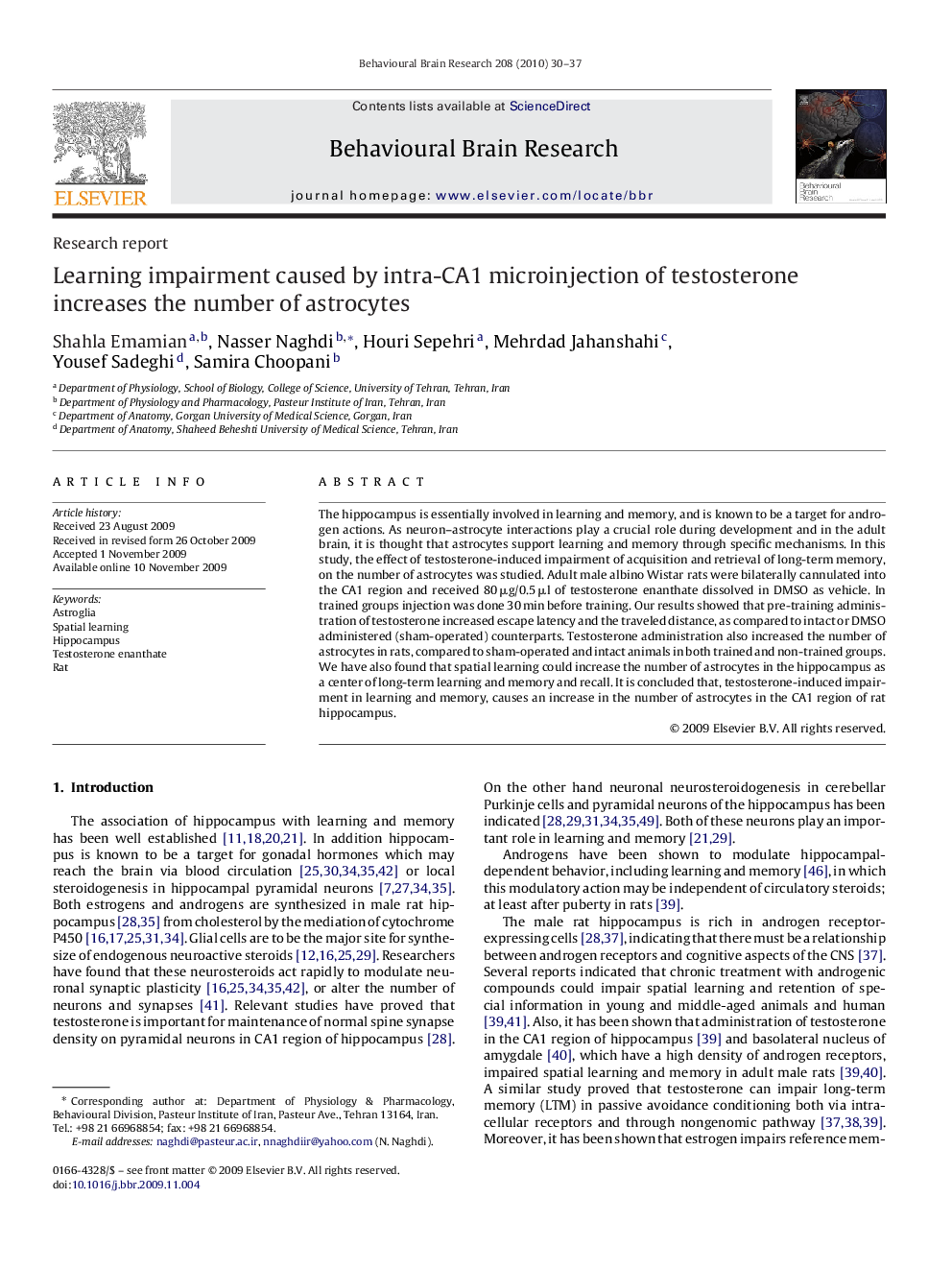| Article ID | Journal | Published Year | Pages | File Type |
|---|---|---|---|---|
| 4314273 | Behavioural Brain Research | 2010 | 8 Pages |
The hippocampus is essentially involved in learning and memory, and is known to be a target for androgen actions. As neuron–astrocyte interactions play a crucial role during development and in the adult brain, it is thought that astrocytes support learning and memory through specific mechanisms. In this study, the effect of testosterone-induced impairment of acquisition and retrieval of long-term memory, on the number of astrocytes was studied. Adult male albino Wistar rats were bilaterally cannulated into the CA1 region and received 80 μg/0.5 μl of testosterone enanthate dissolved in DMSO as vehicle. In trained groups injection was done 30 min before training. Our results showed that pre-training administration of testosterone increased escape latency and the traveled distance, as compared to intact or DMSO administered (sham-operated) counterparts. Testosterone administration also increased the number of astrocytes in rats, compared to sham-operated and intact animals in both trained and non-trained groups. We have also found that spatial learning could increase the number of astrocytes in the hippocampus as a center of long-term learning and memory and recall. It is concluded that, testosterone-induced impairment in learning and memory, causes an increase in the number of astrocytes in the CA1 region of rat hippocampus.
